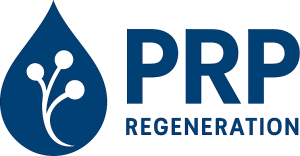What Is Platelet-Rich Plasma (PRP)?
PRP is a cutting-edge medical treatment that uses components of your own blood to stimulate healing in injured tissues. Platelets are rich in growth factors and proteins that play a crucial role in tissue repair and regeneration. By isolating and concentrating platelets in a small amount of plasma, PRP therapy delivers these healing components directly to areas in need.
Common Uses of PRP Therapy
PRP injections are commonly used to treat a variety of conditions, including:
• Musculoskeletal Injuries: Tendonitis, ligament sprains, and muscle injuries.
• Joint Pain and Arthritis: Especially in the knees, shoulders, hips, and hands.
• Skin Rejuvenation: Reducing wrinkles, scars, and improving skin tone.
• Hair Loss: Stimulating hair regrowth in cases of androgenic alopecia or thinning hair.
What to Expect During the Procedure
1. Preparation: A sample of your blood will be drawn, similar to a routine blood test.
2. Processing: The blood is placed in a centrifuge to separate the platelets and plasma from other components.
3. Injection: The concentrated PRP is injected into the targeted area. Ultrasound guidance may be used for precision.
The procedure typically takes about 30-60 minutes and is performed on an outpatient basis.
Benefits of PRP Therapy
• Minimally invasive.
• Uses your own blood, reducing the risk of allergic reactions.
• May reduce the need for surgery or long-term medication.
• Promotes natural healing and tissue regeneration.
Potential Risks and Side Effects
While PRP is generally safe, some patients may experience:
• Pain, swelling, or bruising at the injection site.
• Temporary stiffness or discomfort.
• Rare cases of infection or nerve damage.
• May require 1-3 treatments to treat the underlying condition
• Treatment failure
Discuss any allergies, medical conditions, or medications with your healthcare provider to minimize risks.
Who Is a Good Candidate for PRP?
PRP may be a good option for you if:
• You have a chronic condition or injury that has not responded well to other treatments, such as mild to moderate osteoarthritis or tendinosis that has persisted despite 6-12 weeks of conservative treatment.
• You are looking for a natural approach to healing.
• You are in generally good health and have realistic expectations about the outcomes.
PRP may not be suitable for individuals with:
• Severe anemia or low platelet count.
• Coronary artery disease requiring blood-thinning medications (e.g., aspirin or Plavix).
• Active infections or cancer.
• Certain autoimmune conditions.
Pre-Treatment Instructions
• Avoid all anti-inflammatory medications (e.g., ibuprofen, aspirin) for at least 7 days before the procedure.
• Stay hydrated and eat a light meal prior to your appointment.
• Wear comfortable clothing that allows easy access to the treatment area.
Post-Treatment Care
• Rest the treated area for the first 24-48 hours.
• Avoid strenuous activities for 7 days after the injection.
• Use Tylenol and the medications prescribed by your healthcare provider to treat the pain
• Avoid anti-inflammatories for 1 week after the injection
• Follow your provider’s instructions regarding physical therapy.
Most patients can resume normal activities within a few days, but full healing and results may take weeks to months.
Questions to Ask Your Provider
• Is PRP the right treatment for my condition?
• What results can I realistically expect?
• How many sessions will I need, and what is the cost?
• Are there alternative treatments I should consider?
Conclusion
PRP therapy is an innovative and promising option for those seeking a natural and effective way to heal injuries, reduce pain, or rejuvenate the skin and hair. Consult with a qualified provider to determine if this treatment is right for you.
Disclaimer: This guide is for informational purposes only and is not a substitute for professional medical advice. Always consult your healthcare provider for personalized recommendations.
Begin your path to a pain-free life with advanced PRP therapy – customized care that works with your body’s natural healing process every step of the way.
